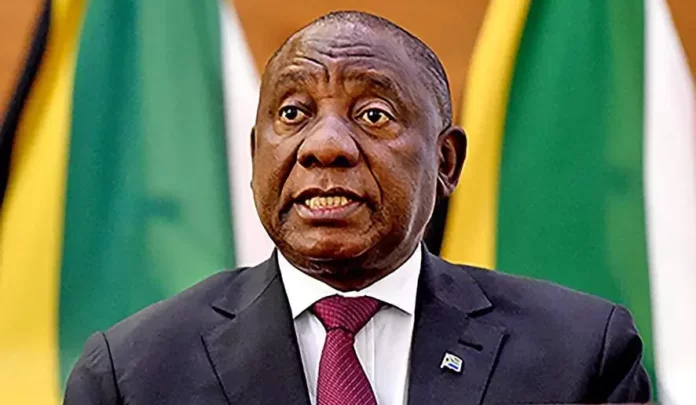In an unexpected development Vincent Magwenya, spokesperson for President Cyril Ramaphosa, revealed during a media briefing on Monday that the president has decided to withdraw a legal application seeking a review and nullification of the Section 89 panel’s report regarding his actions during the Phala Phala incident.
The announcement follows speculations on social media suggesting that Ramaphosa was contemplating resigning, following earlier advice against leaving the high office in 2022.
The Section 89 panel previously found that Ramaphosa was potentially in serious breach of sections 96(2)(a) of the constitution and section 34(1) of the Prevention and Combating of Corrupt Activities Act, which raised concerns about a possible violation of his oath of office.
However, he refuted the allegations and took the report to court for review.
According to Magwenya, the president has received advice which he has accepted, suggesting that the panel report and its associated issues have become moot and hold no practical and legal consequence.
He noted that the advice stems from the National Assembly’s decision on December 13 to reject the motion to refer the panel report to an impeachment committee.
Magwenya explained that Ramaphosa has been advised not to pursue legal proceedings before the high court to review and set aside the report at this stage.
“The president has thus been advised not to institute proceedings before the high court for review and setting aside of the panel report at this stage,” said Magwenya.
“President Ramaphosa reserves his right to bring such proceeding in due course, should the circumstances change.”
He emphasized that the president maintains his position, as stated in his founding affidavit before the Constitutional Court, that the panel report is reviewable in law on several grounds.
According to him, these include alleged misconceptions of the panel’s mandate, grave errors of law, and unfounded conclusions of fact.
He also clarified that Ramaphosa acknowledged the Constitutional Court’s decision to refrain from addressing the substance of the application he filed in that court seeking to invalidate the report.
“In the first part of the president’s review application, he sought leave to bring the case directly to the Constitutional Court because it was, according to the advice he received, a matter that fell within [the Constitutional Court’s] jurisdiction and in the interest of justice.
“In the second part, he asked that the report of the panel be reviewed, declared unlawful, and set aside.
“The Constitutional Court’s decision was on the grounds that the application is not within the court’s exclusive jurisdiction and no compelling case for direct access was made. The president respects the ruling of the Constitutional Court,” said Magwenya.
While Magwenya did not explicitly state the reasons behind the change, the mootness of the report in the eyes of the law may have influenced the president’s decision not to proceed with the legal application.
However, as the political landscape continues to evolve, observers are expected to closely monitor the president’s actions and decisions in relation to the Section 89 panel’s report.
Furthermore, his reserved right to pursue legal proceedings in the future suggests that the matter may not be completely settled.
Additional reporting by SAnews.gov.za
Follow @SundayWorldZA on Twitter and @sundayworldza on Instagram, or like our Facebook Page, Sunday World, by clicking here for the latest breaking news in South Africa.



